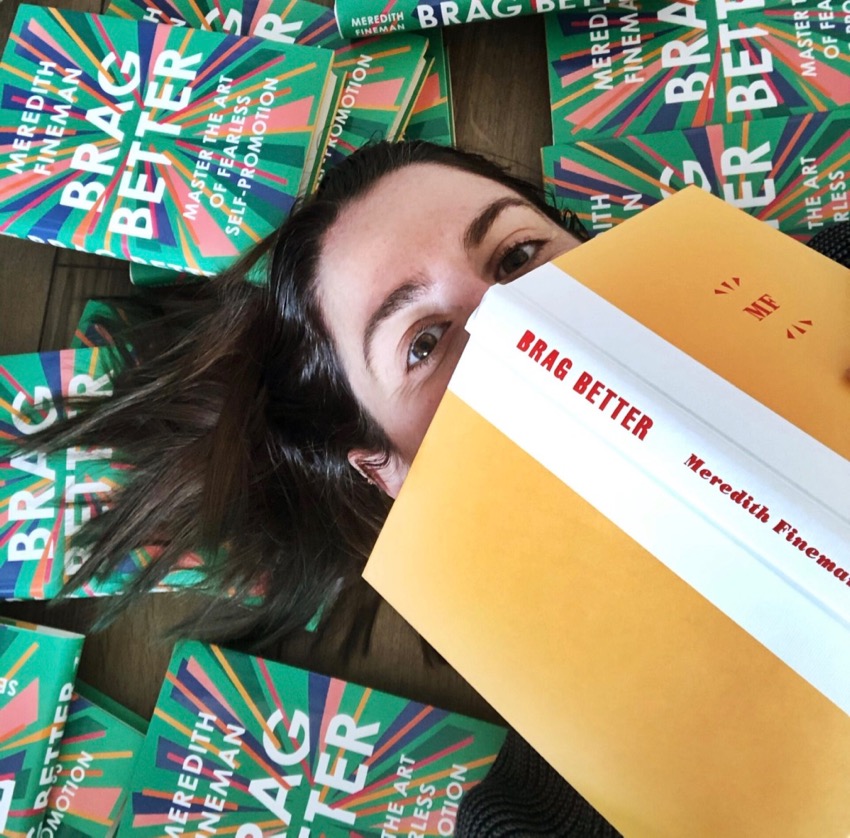'Brag Better'

Have you ever wanted to brag about yourself and your accomplishments but were afraid to do so? Join the crowd. If you have no problems with bragging, then congratulations – you are getting closer to your goals. According to Meredith Fineman, author of Brag Better: Master the Art of Fearless Self-Promotion, if you are willing to take the leap from thinking bragging is vulgar to embracing it, your life is headed in the right direction.
The general overall definition of brag shows up in most dictionaries as ‘pompous, boastful, arrogant talk or manner and a braggart.’ Having said that, we asked the author to define bragging as she sees it and why she chose bragging over an alternative option. “So I’ve been working with the word brag for about seven years Many people have tried to dissuade me from using it. I mean, my work is centered around helping my audience which is the qualified quiet. It talks about people that have done the work but who don’t know how to tout it, talk about it, showcase and brag about their work. So as a writer for a very long time and someone who’s really interested in language, the problem is that we don’t really have any other words to talk positively about professional accomplishment, like singular words. You have some colloquialisms like hyping yourself, but that’s not really sufficient. So I chose to use the word brag and define it as true statements about your work that you are using consistently, loudly, proudly, and strategically to advance your career. That’s how I would define it,” Fineman told Hollywood on the Potomac.
“One thing that interests me a lot about the definition is that yes there are obvious negative connotations with this word, but we suffer from a lack of other ones,” she added. “I thought about that and I decided that instead of inventing a new word – while I think a new word should be invented – that until we’re there linguistically we have to work with what we’ve got. And so a lot of the definitions of brag, whether it’s to talk about oneself boastfully or talk about oneself with excessive pride which are pretty subjective, make bragging so difficult. However, one person’s bragging is just another person sharing. Bragging specifically for me and for my work for purposes of this book, is really strategic messaging around the work you’ve done around your accomplishments, around the things in your career that you’re proud of. It’s just whatever you’re most passionate about. I think that is how I would differentiate it from self confidence. I think it’s a skillset that I have trained people on and developed that is also rooted in public relations activities and this idea of packaging and pitching and telling a solid story. But more than anything, brags are strategically loud about what they’ve done. [It’s] a professional goal.”
Since so many of our attitudes can be attributed to our childhood environment, we asked Meredith how that many have influenced her.
Q: “Did your parents brag about you and if so, directly or to friends?”
A: “I think my work stems from an interesting combination where I have a very vocal mother who had particularly women around bragging and talking about their work. So I was lucky that I never had a mother who demonstrated that silence was effective. Then you couple that with growing up in the media and the political bubble of Washington having a dad who is a writer and on television, I think those two things combined make me feel lucky, like I’d never felt like as a woman I was supposed to be quiet. That was reinforced to me in other ways, not just through my parents. Having a dad who effectively performed on TV, those things together taught me a lot about how to frame yourself and your work and be unafraid to do so.”
Q: The second part of that question: “Did they ever suggest to you that you brag about yourself?”
A: “I don’t think it needed to be said, they did in their actions. I think it was never explicitly, but I think they did, like when we would meet people they would certainly be encouraging of me to share things in general. And they always bragged on my behalf. A huge part of bragging better is doing so for others then asking others to do so for you, not just for your own purposes, but for their work too so you can help other people. I think it was just sort of almost understood. I call it the five minute family media circus.”




